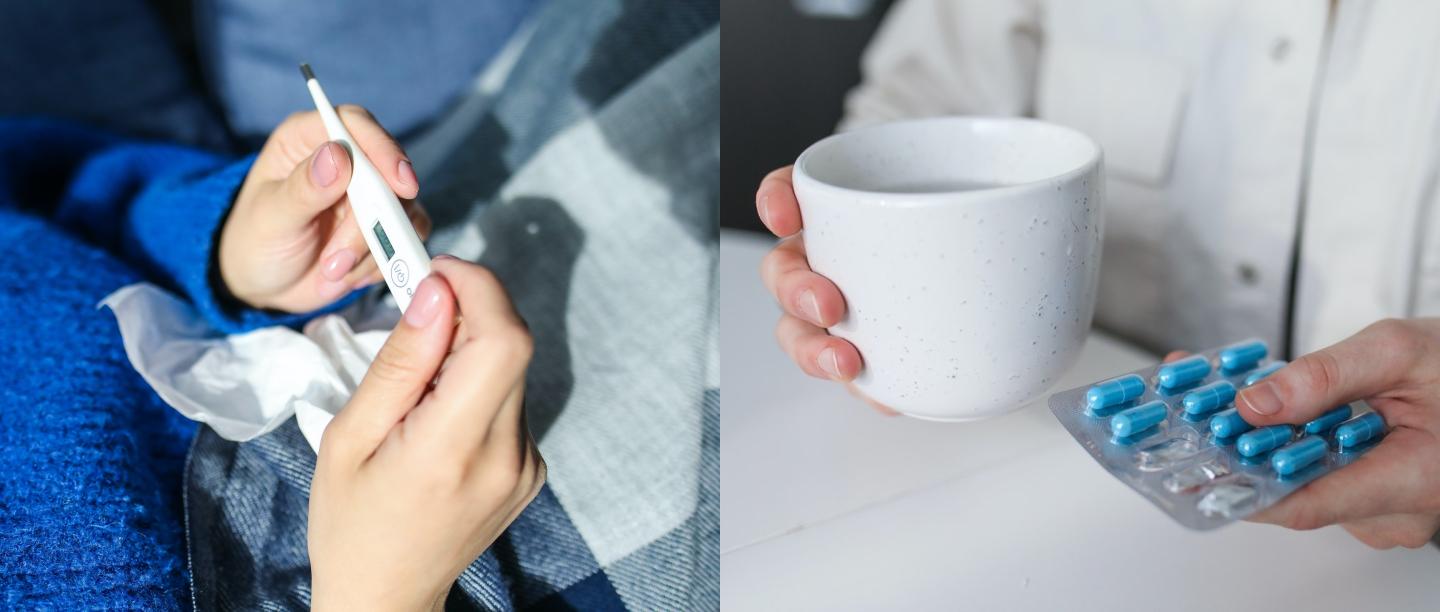With the ongoing COVID-19 crisis, our healthcare systems are extremely overburdened. So if your loved one is experiencing any symptoms of the virus, it’s best they recover at home if they have mild symptoms or are asymptomatic. Patients who are asymptomatic will display no signs of illness, and patients with mild symptoms usually experience cough, sore throat, chills, mild fever and body ache. However, the best way to ascertain this is to consult a doctor, who will analyse their symptoms and vitals, and tell you how severe their infection is.
Once you get the go-ahead from your doctor to isolate your family member at home, there are certain dos and don’ts you need to keep in mind if you are their primary caretaker. Not only do you need to monitor your loved one, but you also need to ensure you don’t end up contracting the virus. Keep the following tips in mind if you are caring for a COVID-19 patient at home.
How To Care For a COVID-19 Patient
#COVID19 home-caregivers:
— World Health Organization (WHO) (@WHO) March 31, 2020
Ensure ill person rests, drinks plenty fluids & eats nutritiously
Wear😷when in same room
Clean🙌frequently
Use dedicated🍽️🥛towel & bedlinen for ill person
Disinfect surfaces touched by ill person
📞healthcare facility if person has difficulty breathing pic.twitter.com/5TphNdYMC9
So your loved one tested positive for coronavirus and their doctor has recommended they isolate at home. What next? Here’s a comprehensive set of guidelines on how to take care of them, and yourself.
Isolate them in a separate room
The first thing you need to do is completely isolate them in a different room, and keep the door locked at all times. Ideally, this room should also have an attached bathroom, but if it doesn’t, make sure they have access to a bathroom that is not to be used by anybody else. Provide them with all the necessary essentials like tissues, medicines, and medical equipment. Don’t let anybody else from the family enter that room, not even your pets.
Track their symptoms
Even if the patient is asymptomatic or has mild symptoms, they still need to monitor them. This includes taking the temperature, checking their blood oxygen levels and their blood pressure or blood sugar, if they have existing comorbidities. If they are able to do it themselves, ask them to write it down or text you these parameters every few hours a day. If not, wear PPE like double masks and face shields, and track them yourself. Make sure you don’t get too close to them, and sanitise yourself as soon as you leave their room.
Keep them hydrated
Send constant reminders via text or call and tell them to drink a glass of water. If they get sick of chugging plain water, try water infused with fruits or coconut water.
Also Read: Make An Informed Decision: Debunking Nine Common COVID-19 Vaccine Myths
Ensure they’re taking their medication

WHO
Their doctor might have prescribed drugs and supplements to help ease their symptoms and help them recover. As their caregiver, you need to ensure they are taking all their prescribed medication on time. You could set reminders on their phone or give them a call/text every few hours.
Give them healthy, nutritious meals
Make sure you are providing them with healthy nutritious meals at regular intervals. They may lose their appetite, but encourage them to eat at least small portions of food throughout the day. Check with their doctor about the kind of meals you can give them.
Sanitise, Sanitse, Sanitise

WHO
Make sure you sanitise all common areas they visited before they were isolated. This includes changing bed sheets, vacuuming sofas, sanitising high-touch areas like doorknobs, countertops, bathrooms etc. If the sick person visited that area, make sure it is cleaned and sanitised from the inside out.
Stay connected
When a sick person is completely isolated, they are bound to feel lonely and sad. So make sure you stay connected with them via phone, text or video chat. Talk to them often and keep them entertained. If they are not too sick, you can play online games, read to them or just chat. It will keep their spirits up!
Take care of yourself
While caring for a COVID patient, make sure you also take care of yourself. Besides frequent sanitising and bathing, remember to check your temperature, eat on time, hydrate and watch out for symptoms. If you are feeling overwhelmed, don’t hesitate to ask for help, take a break or even schedule an appointment with your therapist should you need it.
Make sure the patient remains in isolation until their doctor gives them the go-ahead to step out. Once they have recovered, do a deep clean of the isolation room. And last but not least, take some time off and spend some time relaxing. God knows you need it!
Featured Image: Pexels



